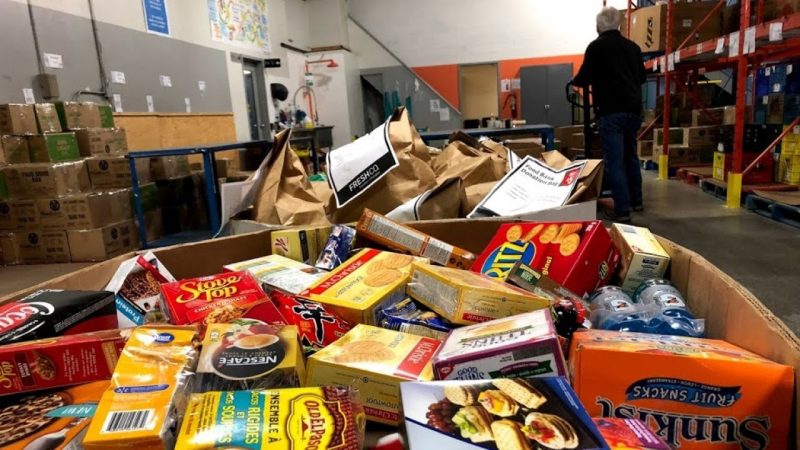‘We are calling on the government to urgently confirm in the Autumn Statement that benefits will rise in line with inflation next April, and to reduce the burden of debt deductions which drive unacceptable levels of hardship.”

New figures released by the Trussell Trust, providers of emergency food and support to people in crisis, show that 1.5 million emergency food parcels were delivered between April and September 2023. Representing a 16 percent increase from the same period in 2022, this is the highest number of emergency food aid the network has ever distributed at that point in the year.
The data also shows that 65 percent of all the parcels provided by Trussell Trust food banks in the six-month period this year were for families with children. Marking an 11 percent increase compared to the same period last year, a record 540,000 food parcels were provided for more than 265,000 children living in families who could not afford the basics.
The charity cited low incomes, especially from welfare benefits, debt, health conditions and issues with social security payments, such as delays or sanctions, as the main reasons people were left forced to turn to food banks for help.
Food banks across Britain have been reporting they are at ‘breaking point’ and the winter hasn’t even got going yet.
London centres affiliated with the Trussell Trust say that between April and September this year, they distributed 30 percent more emergency parcels than last year. In the same period, more than 76,000 parcels were provided to support 32,400 children across the city.
In Lambeth, 12,460 emergency parcels were distributed between 1 April and 30 September this year, compared to 10,495 over the same period last year.
Food banks on the Wirral tell a similar story. Data from the Wirral food bank reveals 7,420 emergency food parcels to people facing hardship across the region between April and September. 2,553 of these parcels went to children. This is an increase of 35 percent compared to the same period last year.
Richard Roberts, general manager at Wirral Foodbank said: “Sadly, we continue to see an increase in demand for our services.
“Demand is currently outstripping the supply of donations.”
In Scotland, the Trussell Trust network of food banks distributed 128,000 food parcels between April and September this year – more than ever before for a six-month period.
Alastair Blackstock, Falkirk Food Bank chairman, said: “We’ve seen a rise in the number of food parcels we’ve sent out over the last year. I’d say we’ve put out 8,000 parcels and its rising all the time.
“We are not getting as much food collections from the supermarkets due to the cost of living.”
The Trussell Trust is calling on the government to use its autumn financial statement on 22 November, to do more to protect households on the lowest incomes.
Trussell Trust chief executive Emma Revie said: “These statistics are extremely alarming. An increasing number of children are growing up in families facing hunger, forced to turn to food banks to survive.
“That’s why the UK government must build on its work to protect people from increasingly severe hardship and commit to putting an Essentials Guarantee into legislation, to embed in our social security system the widely supported principle that, at a minimum, Universal Credit should protect people from going without essentials.
“We recognise this change cannot happen overnight, which is why we are also calling on the government to urgently confirm in the Autumn Statement that benefits will rise in line with inflation next April, and to reduce the burden of debt deductions which drive unacceptable levels of hardship.”
Gabrielle Pickard-Whitehead is a contributing editor to Left Foot Forward
Left Foot Forward doesn't have the backing of big business or billionaires. We rely on the kind and generous support of ordinary people like you.
You can support hard-hitting journalism that holds the right to account, provides a forum for debate among progressives, and covers the stories the rest of the media ignore. Donate today.



